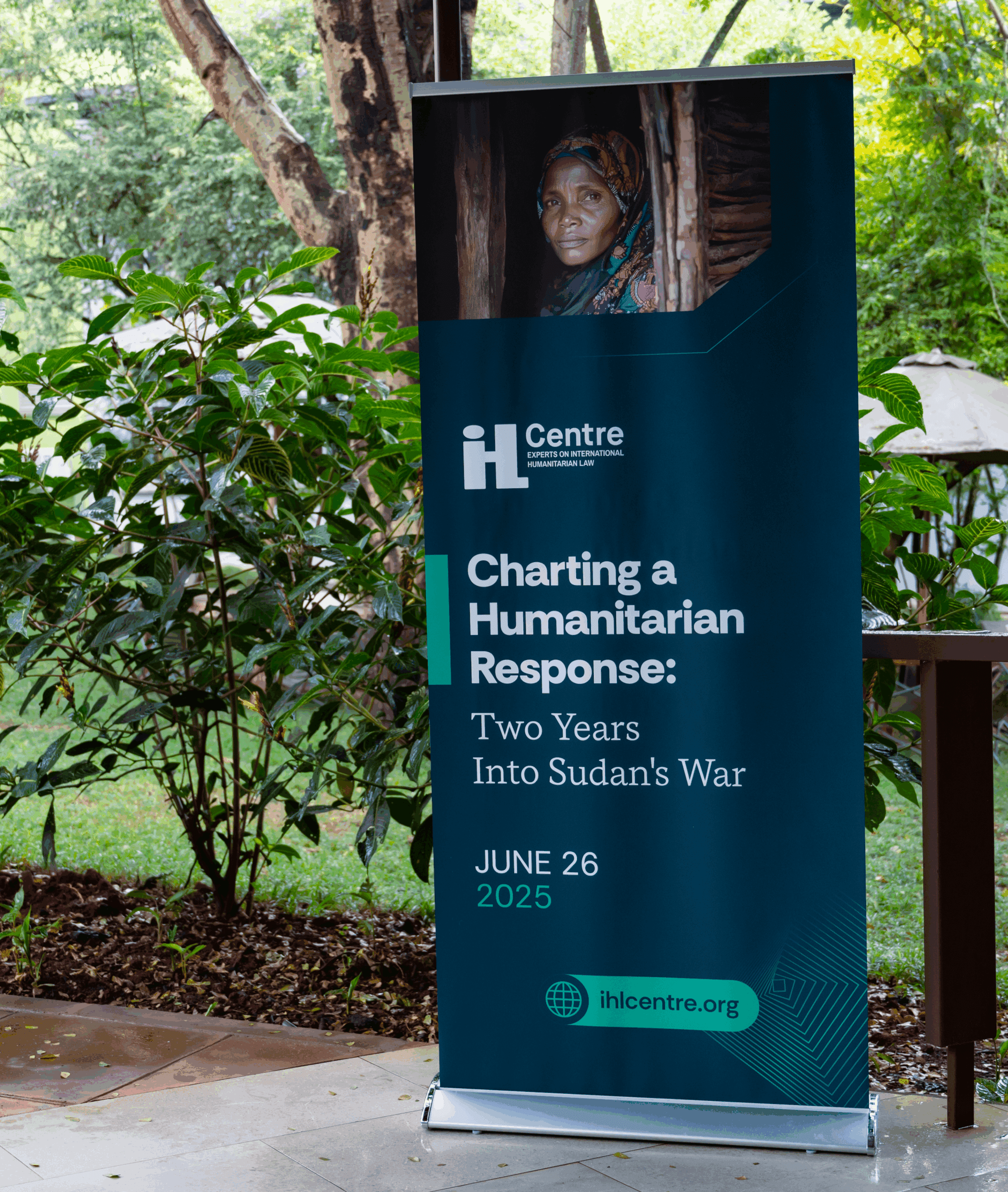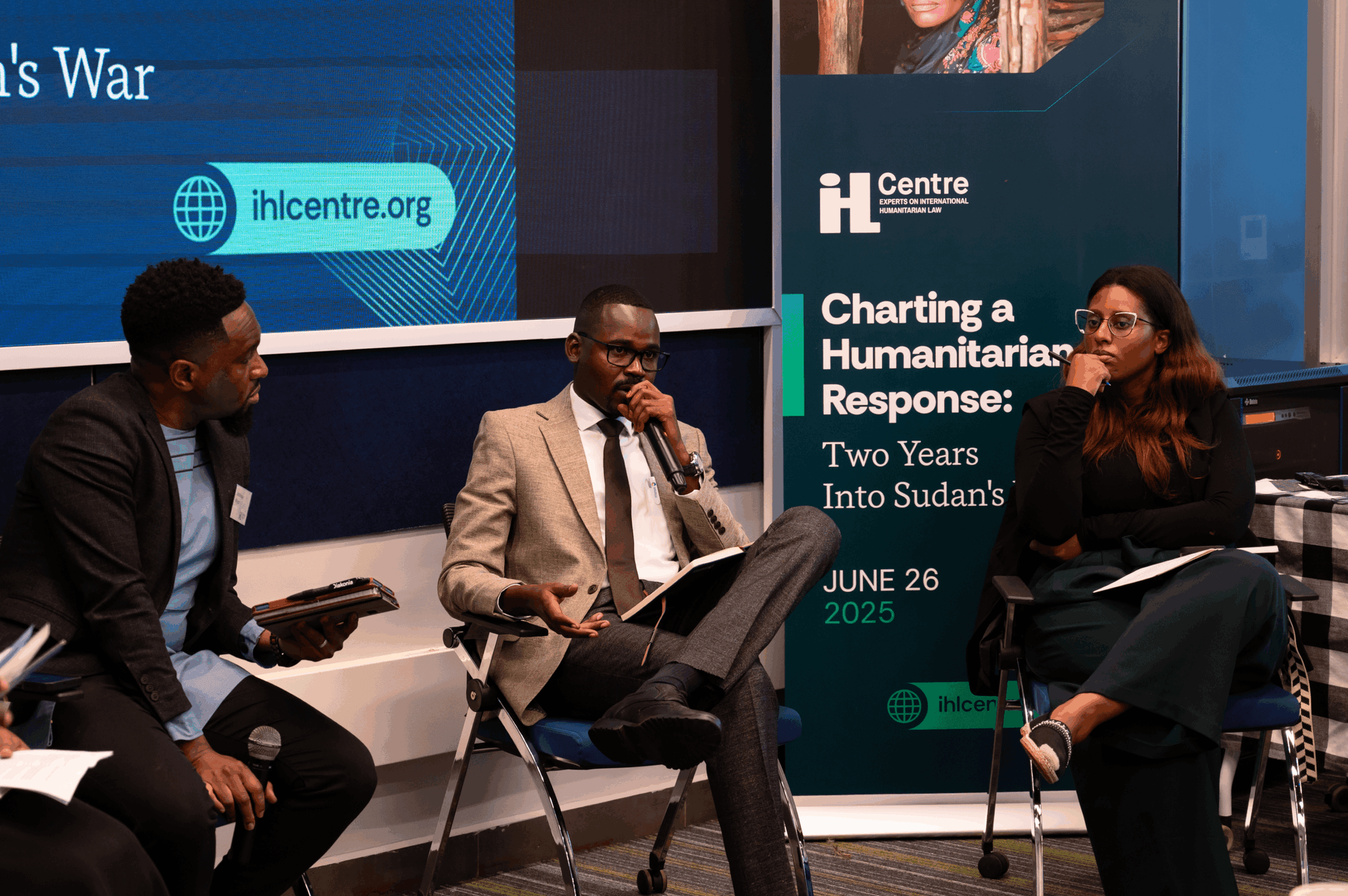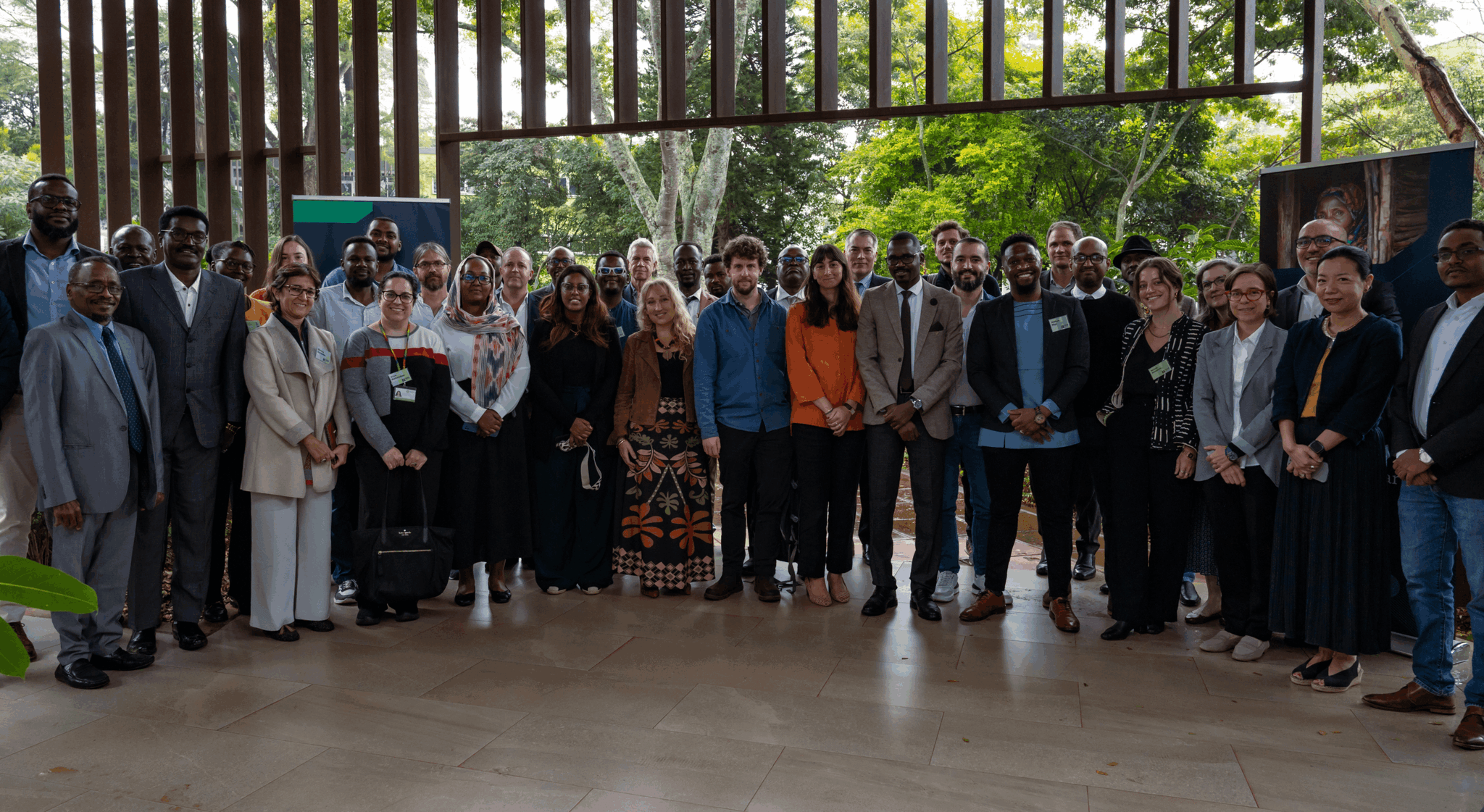
Charting a Humanitarian Response: Two Years Into Sudan's Conflict- Nairobi, Kenya
14 July 2025Two years into the devastating conflict in Sudan, the IHL Centre convened a half-day panel event, bringing together key stakeholders to examine the trajectory of the conflict, highlight critical humanitarian access issues, and advocate for stronger international protection of civilians.

Held in Nairobi, a hub for humanitarian coordination on Sudan, the event brought together over 30 key stakeholders from humanitarian organisations including the International Committee of the Red Cross (ICRC), diplomatic missions, UN agencies, think tanks, and donors, including ECHO.
The discussions were anchored in new findings from recent reports authored by the ICRC and Plan International, which painted a grim picture of widespread suffering, rampant displacement, and a near-total collapse of basic services in Sudan.
Sudan is now home to the largest humanitarian crisis in the region, with more than 30 million people in need of assistance—many of them children. The war has triggered one of the world’s worst child malnutrition emergencies, particularly in Darfur, where entire communities face starvation. Parties on both sides of the conflict have reportedly committed serious violations of international humanitarian law, including deliberate attacks on civilians, deliberate obstruction of humanitarian aid, deliberate attacks targeting healthcare workers and facilities and indiscriminate attacks, including through the use of explosive weapons in populated areas.
Humanitarian Access: A Perilous Landscape
Speakers painted a stark picture of the extreme danger faced by humanitarian workers, who are specially protected under IHL. Sudan is now considered one of the most hazardous operational contexts in the world. Aid organisations are routinely forced to negotiate access with both Sudanese Armed Forces (SAF) and Rapid Support Forces (RSF)-aligned authorities; often under volatile and shifting frontlines.
The fragmentation of authority has made it nearly impossible to deliver aid effectively to millions of displaced and vulnerable civilians. Frontline negotiations are ad hoc, inconsistent, and fraught with risk, while attacks on aid workers and convoys continue with near-total impunity.
Political Inaction and Diplomatic Paralysis
The panellists strongly criticised the lack of effective global response, warning that political inaction is exacerbating human suffering. The panel highlighted that this political inaction stems from deeply entrenched regional allegiances to opposing sides of the conflict. Many external actors are not neutral but actively support the parties to the conflict with political backing, funding, and arms. This has fractured the possibility of a unified response and undermined efforts to uphold international humanitarian law or push for a ceasefire.
Political inaction, therefore, is not just a lack of will, but a consequence of competing geopolitical interests. Despite mounting evidence of atrocities and violations of international humanitarian law, regional and global powers have failed to leverage meaningful influence over the warring parties.
Despite evidence of mass suffering and violations of international humanitarian law, international and regional actors have failed to exert meaningful pressure on the conflict parties. The event underscored that current approaches, particularly public condemnation and “naming and shaming”, have not only been ineffective, but in some cases counterproductive, further entrenching resistance to engagement and access negotiations.
Severe Funding Reductions Undermining Aid Delivery
The humanitarian response in Sudan has been further weakened by major funding cuts, notably from key donors such as the United States. These reductions are forcing organisations to scale back operations at a time of record need. Many actors are now pivoting to more cost-effective, locally led, and cash-based interventions in order to maintain minimal levels of support.
Urgent Need for Coordinated, Principled Action
Participants at the event called for immediate high-level political intervention to address humanitarian access barriers and protect civilians. Key recommendations included:
- Prioritising sustained and principled engagement with all parties to ensure access and safety for humanitarian personnel, and compliance with IHL.
- Increasing investment in local infrastructure and frontline responders to enable more resilient aid operations.
- Supporting flexible, community-driven programming that can adapt to complex and unstable conditions.
- Placing civilian protection at the heart of all diplomatic and humanitarian strategies.
- Supporting IHL monitoring initiatives and mechanisms, both local and regional.
